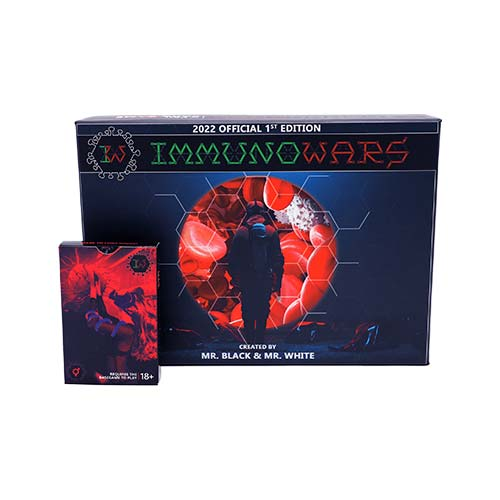Author: Anne Kuijper
Read time: 4 minutes
Gonorrhea is the second most common infectious disease in the world, with millions of infections each year. While treatable with antibiotics, the World Health Organization (WHO) shows that antimicrobial resistance is an ever increasing problem. In a recent scientific paper, researchers from Italy highlighted the need for strategies to combat gonorrhea antimicrobial resistance. These strategies include the correct use of antibiotics, better diagnosis of gonorrhea, and realization of prevention plans. Several types of antibiotics, all with different bacteria destruction mechanisms, have already been rendered useless against gonorrhea infections. When bacteria become resistant to multiple antibiotics, it is dubbed a super bug. Superbugs are very difficult to treat and pose a great danger to us.

Neisseria Gonorrhea
The bacteria that cause the infection known as gonorrhea is called Neisseria gonorrhoeae. This bacterium has figured out how to resist several types of antibiotics. Antibiotics are drugs to slow the growth of bacteria and kill them. How antibiotics do this differs and that’s why certain antibiotics will work on some bacteria while others do not.
But why do bacteria become resistant to antibiotics, Mr. White? Well, antibiotic resistance is a natural response to these bacteria, explains Mr. White. They develop several methods , such as changing themselves so the antibiotic cannot recognize and bind them. If the antibiotic cannot bind the bacteria, it doesn’t affect them. They can even modify the antibiotic itself to avoid getting eradicated. For example, bacteria change the structure of the antibiotic so it cannot bind the bacteria anymore.
Different methods are used against different types of antibiotics. The changes in the bacteria’s arsenal are the result of mutations in their DNA. These mutations change how their DNA looks and can happen individually through time. But they can also be the result of something called horizontal gene transfer.
Horizontal gene transfer means that certain characteristics of a bacteria (the information for a piece of DNA) can be transferred from one bacteria to another. Via this mechanism, beneficial mutations (that help resist antibiotics) can spread from bacteria to bacteria. Ultimately, leading to antimicrobial resistance and superbugs. Although bacteria cannot think like we do, I would say they’re very clever, snickers Mr. Black.
If a bacteria kind becomes resistant to several killing and working mechanisms of antibiotics, it becomes very difficult to treat the infection. This is the case for gonorrhea.
Gonorrhea as a STD
Gonorrhea is known as a sexually transmitted disease , of which the acronym is well known, a STD. Gonorrhea is also referred to as a sexually transmitted infection, a STI. This means that the infection mainly spreads via sexual interaction between people. This includes vaginal, oral, and anal sex. Besides sexual encounters, gonorrhea can also pass from a pregnant mother to her baby during childbirth. A baby can get a serious eye infection that could lead to blindness if not treated!
If you don’t want to get infected, you should use a condom with every sexual encounter you have. After all, prevention is better than cure. If you don’t use a condom when having sex of any kind, it is best to get STD tests regularly.
When you know you are infected, you should notify your past and current sexual partners the best you can. This way you can contribute to the battle against the spread and reign of Mr. Blacks super gonorrhea.
What are gonorrhea symptoms?
Based on if you are a man or woman, the occurrence of symptoms can be different. The start of the symptoms, however, will often be anywhere between the first day after getting infected to two weeks later.
Gonorrhea in male's vs females
As a woman, most likely, you won’t feel any symptoms. Most women don’t experience any symptoms when they are infected with gonorrhea. Scary right, you can have a STI without knowing about it!
Yet, this lack of symptoms does not mean the infection can’t have serious consequences if left untreated. Complications for women include pelvic inflammatory disease (PID) and ectopic pregnancy.
PID happens when the bacteria that causes gonorrhea slinks up into your upper reproductive organs, like the uterus, fallopian tubes, and ovaries, from your vagina. It could cause permanent scarring and damage to your reproductive organs, especially when it isn’t treated.
PID can also lead to an ectopic pregnancy. If you get pregnant the egg is fertilized by a sperm cell. Usually, the fertilized egg attaches to your womb, and grows into a baby there. With an ectopic pregnancy the fertilized egg does not implant into the womb but somewhere else, often the fallopian tubes. This fertilized egg won’t develop into a baby and is dangerous for the mother!
If women have symptoms, they will be similar to how men experience them. These include pain or burning when urinating and discharge from the vagina or penis. Women can also bleed from the vagina between periods and during sex, while men can have painful and swollen testes.
When the infection is anal, both men and women can experience discharge, bleeding, itchiness, soreness, and painful toilet visits. The infection can also take place in your throat without feeling any symptoms.
In men, complications include scrotal swelling and urethral stricture. Scrotal swelling means that the sack which holds the testes swells up due to inflammation. This can be very painful. Urethral stricture happens when the tube in your penis that carries urine from your bladder, narrows. This narrowing can lead to a plethora of problems, such as additional infections, prostate inflammation, and renal failure.
In both men and women, gonorrhea can cause infertility. This means you won’t be able to have children of your own anymore.
So be careful when getting around and use a condom!
Gonorrhea treatments
Currently, antibiotics are the standard of care when somebody has a gonorrhea infection. Super gonorrhea will be more difficult to cure, as Mr. White mentioned earlier. Yet, there is still one antibiotic treatment regimen that can best Mr. Blacks super villain gonorrhea. Please talk to your doctor when you suspect having gonorrhea and get tested! Spread the knowledge (use a condom) and stop the spread of gonorrhea.
Gameplay guide for gonorrhea
Gonorrhea is a playing card in the STD booster pack for the boardgame ImmunoWars. It is an infectious disease, of the bacterial kind, that you can play to infect your opponent.
By using 3 ATP, you will force your opponent to role the die. A scala of symptoms can take pace. Each number on the die gives a different effect, which ranges from taken 2 HP per turn to an asymptomatic infection where nothing happens.
In the game, gonorrhea is of mediocre difficulty to cure, as it has a severity of two. To get rid of gonorrhea, you can use the cards Abcetion, Antibiotics (ampicillin, ciprofloxacin, and penicillin), Bacteriophage, B-cell, CRISPR-Cas9, Macrophage, Monocyte or Natural Killer Cell, similar to whooping cough.
Thus, if you are desperate, close to death or very lucky, you can also use the Bleach, Epinephrine, or Spontaneous Remission card, respectively.
Interested in the boardgame ImmunoWars? Buy one for yourself and your friends!

References
https://www.liebertpub.com/doi/full/10.1089/mdr.2023.0259 - the scientific paper discussed.
https://www.ncbi.nlm.nih.gov/pmc/articles/PMC4536854/
Global HIV, Hepatitis and STIs Programmes (who.int)
Gonorrhoea (Neisseria gonorrhoeae infection) (who.int)
Basic Information about ARG - STD information from CDC


